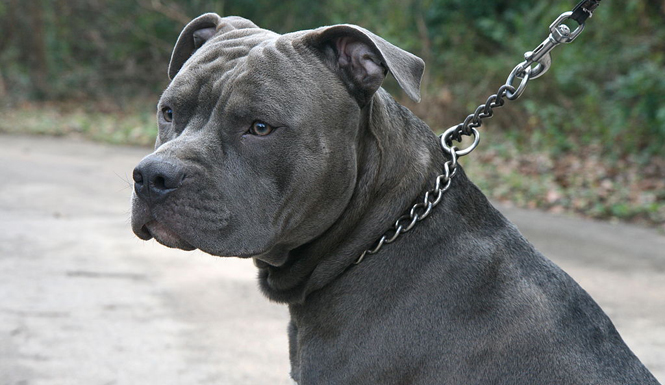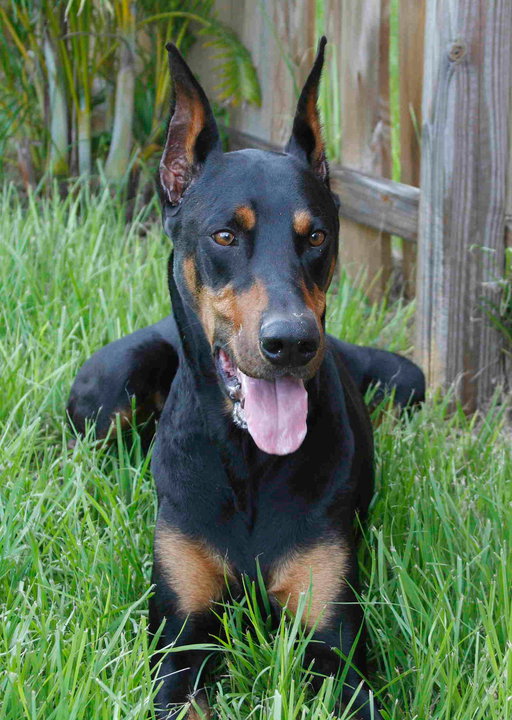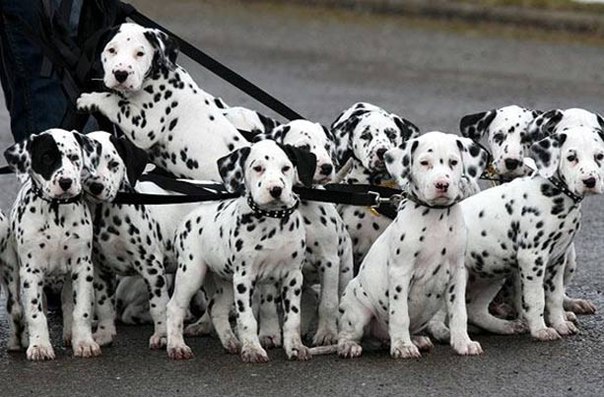Today it's pit bulls that have fallen victim to bad owners and breed specific legislation, but throughout history, it's been German shepherd dogs, Rottweilers, Mastiffs, Dalmatians, and even Chow Chows.
Bad press and general fear fueled by dogfighting and abusive owners have changed the way that the general public views and has viewed these breeds, and in this post, we'll be exploring the history behind it all and the breeds that have suffered the most as a result.
Please SHARE this with everyone you know to promote understanding and tolerance of these misunderstood dog breeds!
What is BSL?

“Breed specific” legislation (BSL) is any law that bans or regulates a certain breed of dog under the justification that it is necessary for public safety and will help reduce the instances of dog bites. These laws can also result in the killing of large numbers of dogs that for no other reason than they are of or look like they belong to a specific breed.
As a result, many loving owners must give up their beloved pets when they are forced to give them up (or move) due to strict housing regulations. Many of these dogs end up in already over-crowded shelters.
The "Usual Suspects"

There are several breeds most commonly discriminated against, known as the "usual suspects." A number of insurance companies deny people due to the breeds they own, while others operate on a dog-by-dog basis. However, some companies consider certain dogs to be "too much of a risk" to insure. Here are some of the usual suspects.
Pit Bulls

A "pit bull" is not necessarily a single breed, but a rough categorization of three breeds: the American Pitbull terrier, the American Staffordshire terrier and the Staffordshire bull terrier.
Technically speaking, the one "true" pit bull is an American Pit Bull Terrier, though the three listed are often mistaken for one.
While pit bulls were bred to be fighting dogs, like any other dog, pits will likely grow up to be loving, wonderful pets if they are raised in dog-friendly, happy homes. Their genetic disposition does not mean that they are aggressive or prone to attacking other animals, but widely reported attacks from the turn of the century to the late 1980s eventually led to breed-specific legislation against them. During the '80s, a number of high-profile attacks on humans led to hysteria among the affected communities, which then led to editorials and eventually, public and widespread outrage.
Remember that fighting dogs are and were trained to fight to the death, so fighting was a necessity for these animals just to stay alive, not a path they chose.
Beloved American Dog

Despite their dark pasts as bull-baiters and fighters, and their poor reputation particularly in the 1980s and early 1990s, pits were considered to be beloved American pets throughout the early half of the century, the United States even personifying itself as a pit bull on World War I recruitment posters. A pit bull named Tige was a close companion of the comic and children's character, Buster Brown.
German Shepherds

In the 1990s, several sources claimed that German Shepherd dogs are more likely to attack smaller breeds or even people. However, well-trained German Shepherds have a reputation for not only being extremely smart and hard-working, but exceptional, safe family pets.
Doberman Pinschers

Dobermans have a ferocious, aggressive stereotype, as they were originally bred to be personal protection dogs. Over the years, however, the aggression of Doberman Pinschers has been significantly toned down, and because of their high intelligence and good-natured temperament, they make great family pets.
Chow Chows

One study concluded that Chow Chows are more likely to bite if they are male, non-neutered, and live in a home with one or more children, however, the study authors acknowledged that their research had several problems, such as excluding cases in which the victim of a bite did no seek medical attention, and failing to verify the breed of the dogs involved. While Chows are known for being fiercely protective of their loved ones, they are typically quiet, well-behaved, loyal pets.
Dalmations

Believe it or not, these bonafide Disney stars (who doesn't love "101 Dalmations?") have been accused of being more likely to bite, although anti-breed discrimination activists argue that there are going to be more cases of dog bites in a breed with a larger population.
Mastiffs

Perhaps its their massive size that frightens people (and some insurers). Back in 2013, Breckenridge, CO considered a highly controversial BSL, despite the state being firmly anti-breed-based legislation. A report created by the chief of police included listed "Doberman, Mastiff, German Shepherd, pit bull, Malamute, Chow, Rottweiler, Husky and an “other” category" as breeds that most people are afraid of or concerned with.
Mastiffs are known for their dignified, reserved personalities, and well-socialized Mastiffs are known for greeting strangers politely.
How Can You Tell If It's a Pit?

One of the issues that BSLs pose is that it can be quite difficult to identify a pit bull from a mixed breed or another breed altogether. As we saw earlier, the public's perception of what a pit bull is is often confused with three specific breeds or a mix of the three (and others).
Some housing complexes list any breed with "pit" or "bull" in its name under the ban list, which may effectively ban bulldogs, French bulldogs, and any other dog that is not a pit bull at all. BSLs also can harm families seeking to adopt children.
A dog breed is a human construct used to group dogs with similar physical characteristics, yet there is no scientific test to determine a dog's official breed.
Thanks to animallaw.info for much of the information presented in this post.
Please SHARE this important information on BSL with everyone you know!




